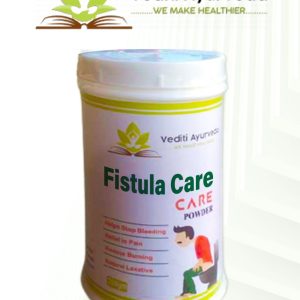Treatment for Fistula-Vediti Ayurveda: Unlocking Natural Healing Introduction In a world dominated by modern medicine, the ancient healing system of...
Our Latest Blogs
- All Posts
- Ayurveda
- Ayurvedic Medicine For Diabetes
- Ayurvedic Medicine For Piles fissure and Fistula
- Back
- Ayurvedic Medicine For Psoriasis
- Ayurvedic medicine for height increase
Treatment for Fistula: Exploring Vediti Ayurveda Introduction Living with a fistula can be physically and emotionally challenging, prompting individuals to explore various...
Fistula Ayurvedic Treatment- Vediti Ayurveda Click Above to buy now In the realm of holistic wellness, the ancient science of...
Ayurvedic Treatment for Fistula at Vediti Ayurved At Vediti Ayurved, we understand the profound impact that a fistula can have...
Unveiling the Healing Wonders: Vediti Ayurveda’s Approach to Fistula Treatment Exploring Holistic Solutions at Vediti Ayurveda At Vediti Ayurveda, we...
Ayurvedic Medicine for Irritable Bowel Syndrome: A Natural Solution Irritable Bowel Syndrome (IBS) is a common gastrointestinal disorder that affects...
Ayurvedic Medicine for Bartholin’s Cyst: Vediti Ayurveda Bartholin Cyst Care Understanding Bartholin’s Cyst Before we delve into the Ayurvedic solutions...
Vediti Ayurveda Fistula Medicine in Homeopathy – Comprehensive Fistula Care In the realm of alternative medicine, where holistic healing methods...
Vediti Ayurveda Anal Fistula Medicine – Fistula Care When it comes to health, we all strive for holistic well-being. However,...
Understanding the Demographics of Bihar: OBCs and EBCs Comprising Over 63% of the Population Introduction In this comprehensive article, we...
Vediti Ayurveda Height Increase Medicine: Unlock Your Potential When it comes to unlocking your full height potential, Vediti Ayurveda has long been...
Comprehensive Guide to Anal Fistulas: Prevention, Diagnosis, and Treatment Introduction In this comprehensive guide, we delve into the intricacies of...
Ayurvedic Fistula Medicine in Biraul – Vediti Ayurveda Fistula Care In our relentless pursuit of comprehensive healthcare solutions, Vediti Ayurveda Fistula Care...

Ayurvedic Medicine For Fistula – Vediti Ayurveda Vediti Ayurveda Fistula Care – Ayurvedic Medicine For Fistula Welcome to Vediti Ayurveda,...





